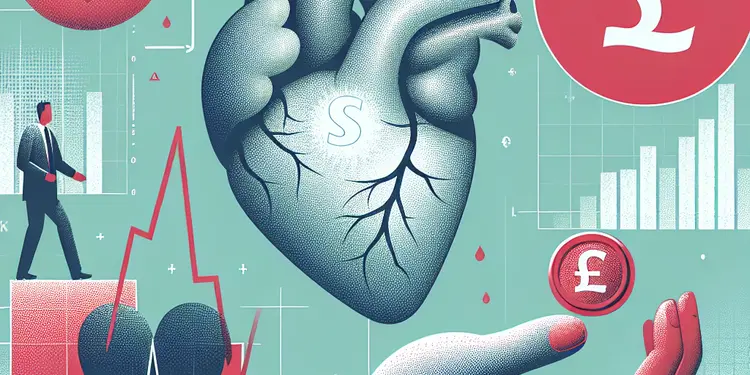
Find Help
More Items From Ergsy search
-
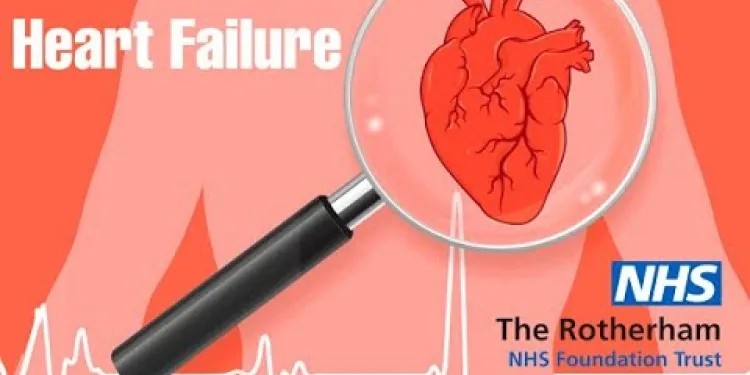
Heart Failure : Symptoms of heart failure
Relevance: 100%
-
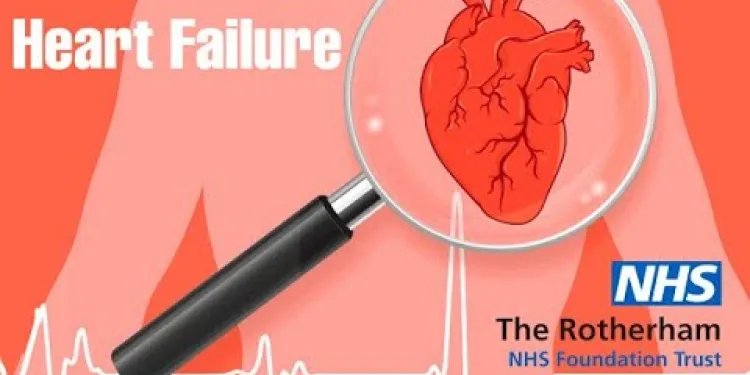
Heart Failure : What is heart failure?
Relevance: 85%
-
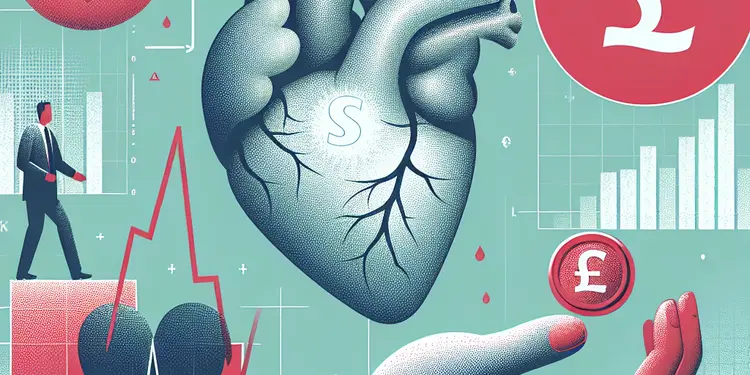
What should I do if I experience symptoms of heart failure?
Relevance: 83%
-
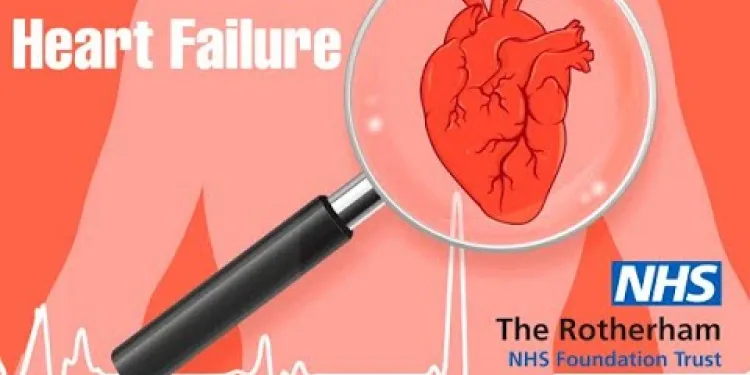
Heart Failure : Heart failure that cannot pump
Relevance: 83%
-

Heart Failure : The normal heart
Relevance: 81%
-

Heart failure introduction
Relevance: 80%
-

Are there different types of heart failure?
Relevance: 76%
-
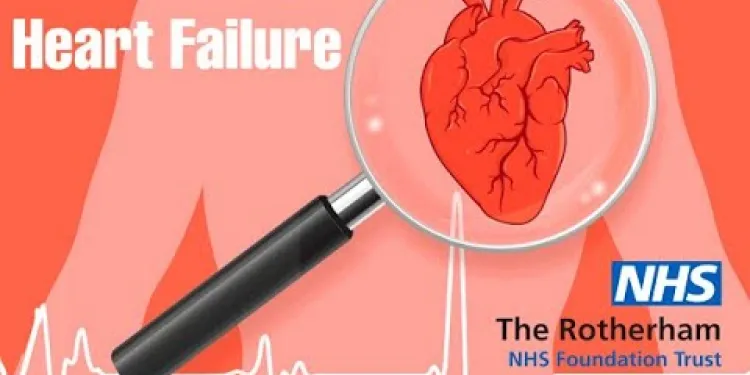
Heart Failure : When the heart becomes stiff?
Relevance: 76%
-
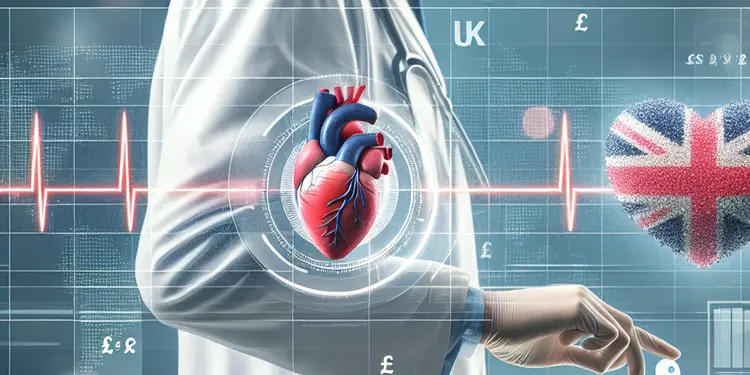
How is heart failure diagnosed?
Relevance: 76%
-
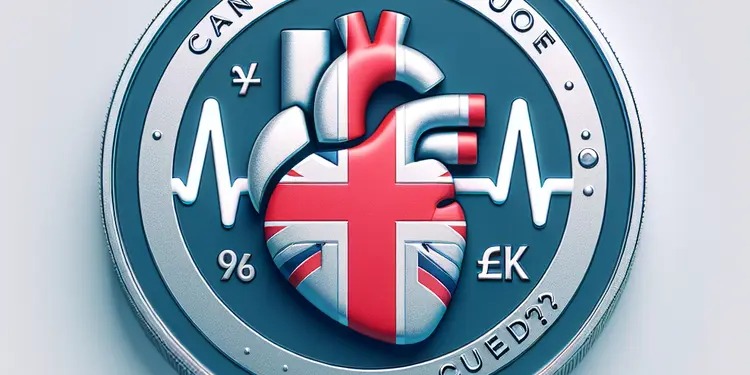
Can heart failure be cured?
Relevance: 76%
-
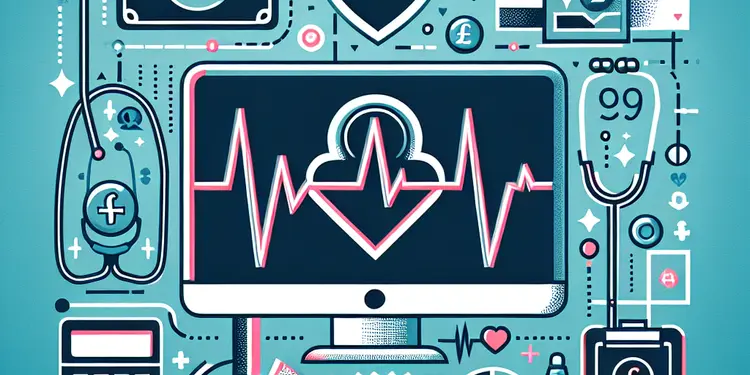
What is the prognosis for someone with heart failure?
Relevance: 72%
-
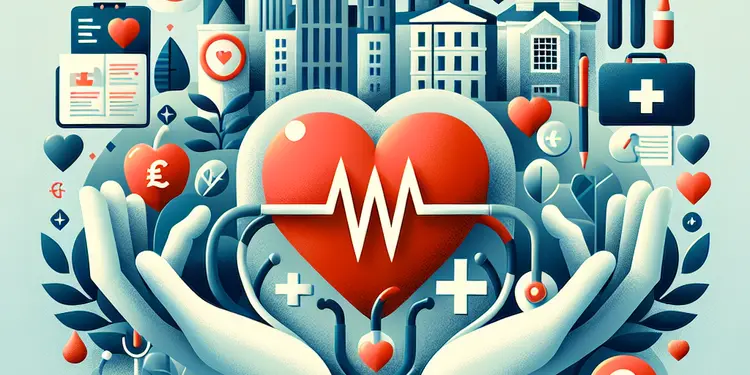
Can heart failure be prevented?
Relevance: 72%
-

What causes heart failure?
Relevance: 72%
-
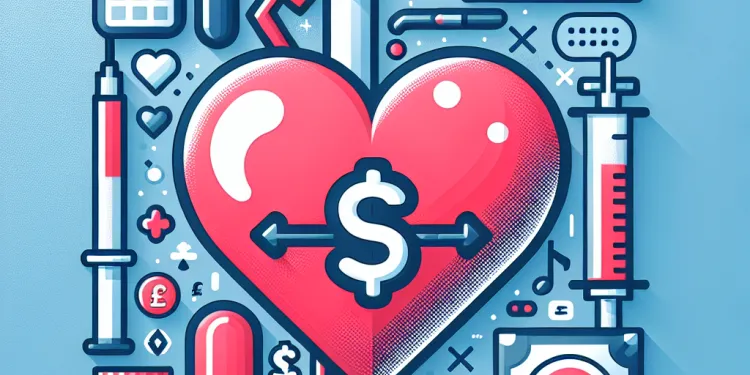
Is Baxdrostat used in treating heart failure?
Relevance: 72%
-
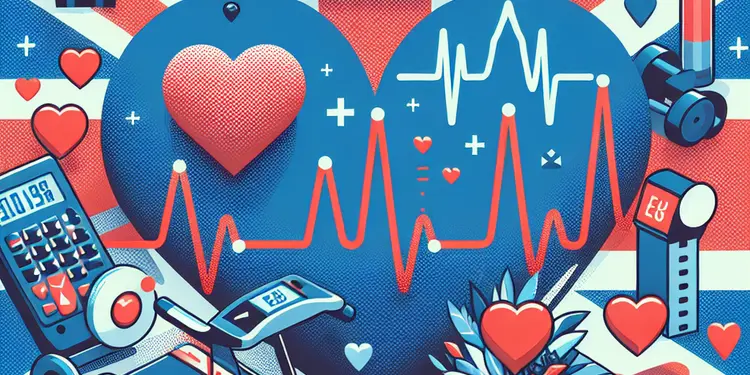
How does exercise impact heart failure?
Relevance: 70%
-
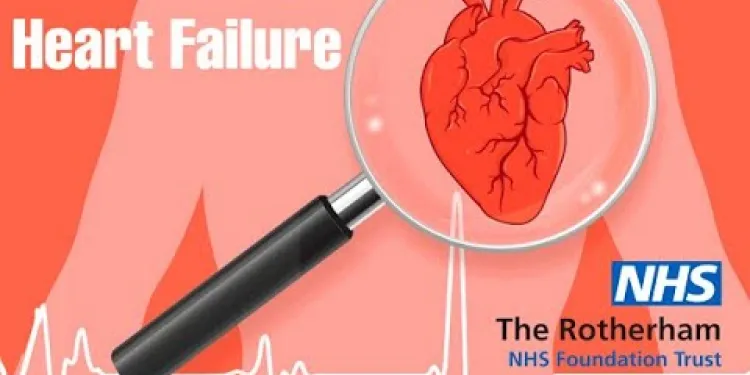
Heart Failure : Treatment and monitoring of fluid retention
Relevance: 69%
-

What is the role of diet in managing heart failure?
Relevance: 69%
-
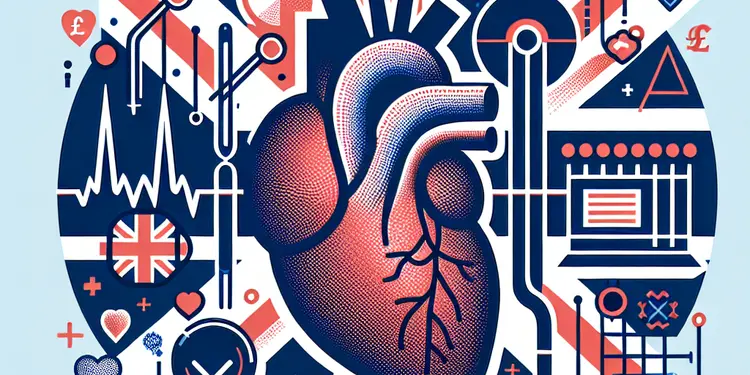
Can heart failure affect other organs?
Relevance: 68%
-

What medications are commonly prescribed for heart failure?
Relevance: 68%
-

What are the common symptoms of heart failure?
Relevance: 67%
-
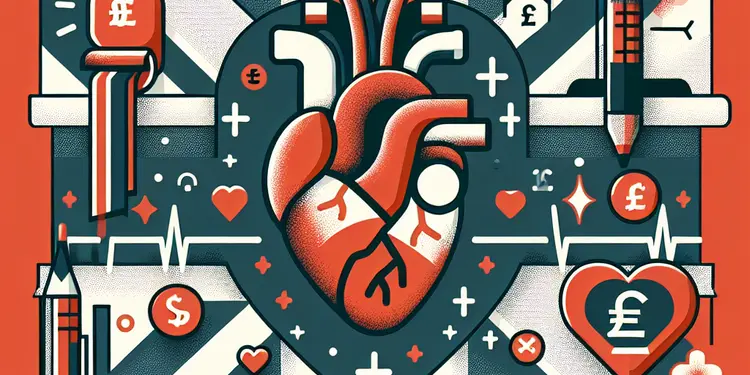
What is heart failure?
Relevance: 59%
-

How long do heart attack symptoms last?
Relevance: 48%
-

Are heart attack symptoms different for people with diabetes?
Relevance: 48%
-

Can heart attack symptoms vary by age?
Relevance: 48%
-
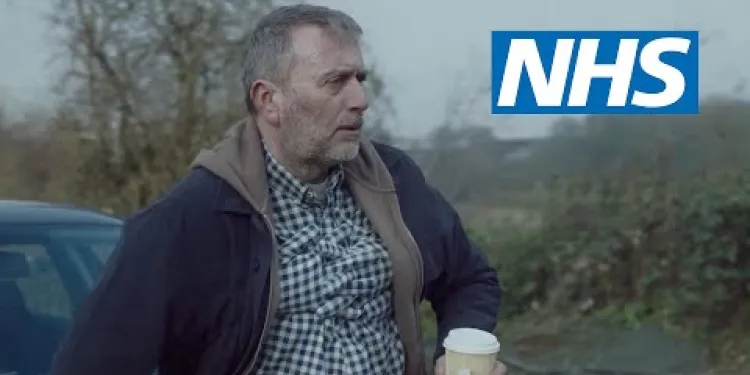
Heart Attack Symptoms - Help Us Help You | NHS
Relevance: 48%
-

What should I do if I'm experiencing heart attack symptoms?
Relevance: 47%
-

Heart Attack Symptoms - Peter Dale (Tubes) | NHS
Relevance: 46%
-
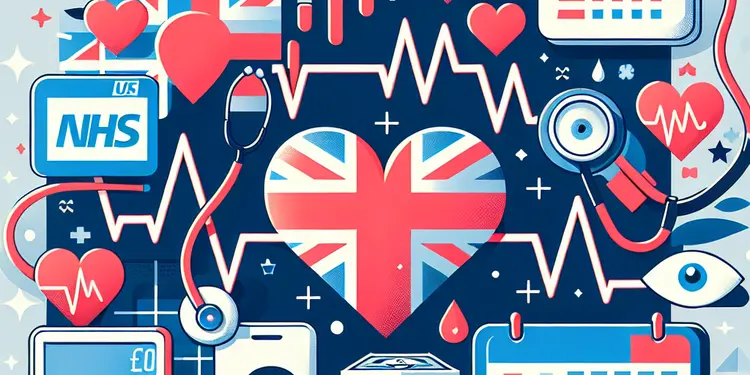
How often should someone with heart failure see their doctor?
Relevance: 46%
-

What lifestyle changes can help manage heart failure?
Relevance: 45%
-

Can women have different heart attack symptoms than men?
Relevance: 43%
-

Is my abnormal heart rhythm dangerous?
Relevance: 43%
-
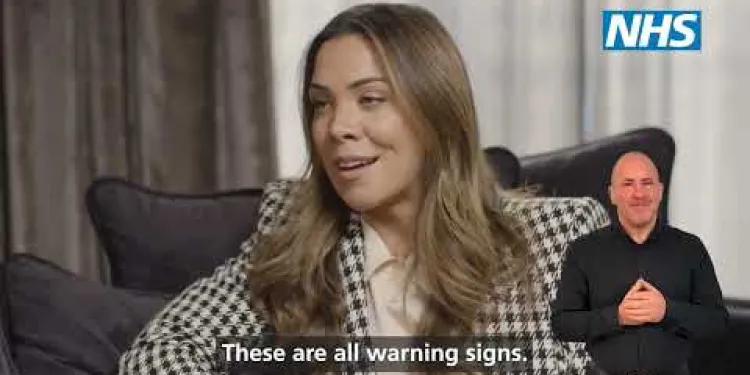
Heart Attack Symptoms - Peter Dale (Tubes) | NHS - BSL version
Relevance: 43%
-
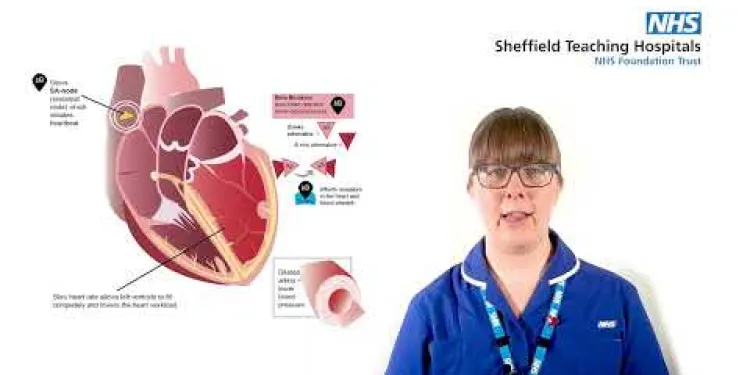
Medicines of the heart
Relevance: 42%
-

Is my abnormal heart rhythm dangerous?
Relevance: 41%
-
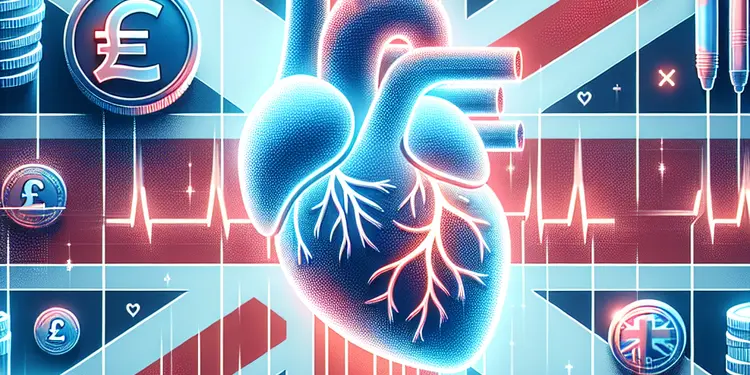
What are the long-term effects of a heart attack?
Relevance: 39%
-

Can anxiety cause heart attack-like symptoms?
Relevance: 37%
-
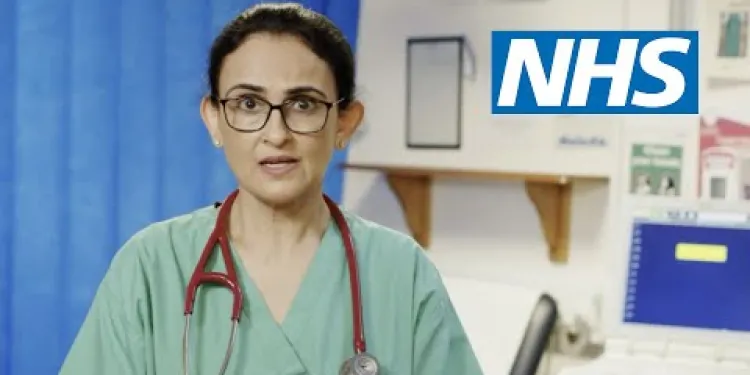
Heart Attack Stories | NHS
Relevance: 37%
-
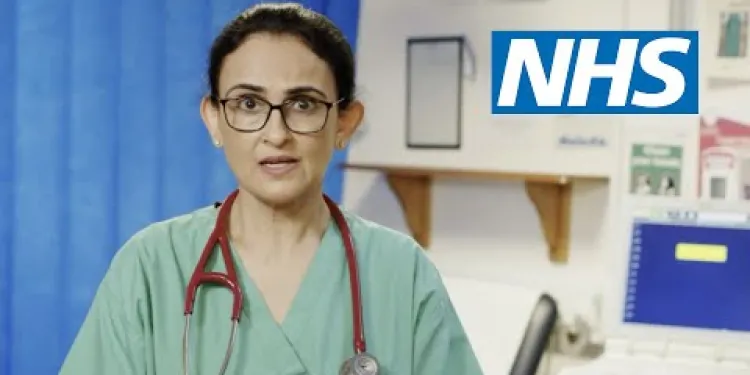
Heart Attack Stories | NHS
Relevance: 37%
-

How do beta-blockers contribute to heart attack prevention?
Relevance: 37%
-

Heart stents
Relevance: 37%
Recognizing Heart Failure Symptoms
Heart failure is a serious condition that requires medical attention, and recognising its symptoms is the first critical step. Common symptoms include breathlessness, fatigue, swollen ankles and legs, and sudden weight gain. Some individuals may also experience persistent coughing or wheezing, loss of appetite, nausea, or difficulty concentrating. It is essential not to ignore these signs, as timely intervention can significantly improve outcomes.
Immediate Actions to Take
If you experience symptoms of heart failure, it is crucial to act promptly. Begin by contacting your GP or NHS 111 for guidance, especially if this is the first time you have experienced these symptoms. They can provide advice specific to your health situation and may recommend seeing a healthcare professional urgently. If your symptoms are severe, such as experiencing chest pain, severe breathlessness, or fainting, do not hesitate to call 999 for emergency services. Quick action could prevent further complications.
Consulting Your Doctor
Your doctor is a key ally in managing heart failure. During a consultation, provide a detailed account of your symptoms, including their severity and duration. Your doctor may conduct tests such as an ECG, blood tests, or an echocardiogram to diagnose the condition accurately. Knowing your medical history, including any previous heart conditions, is also beneficial. Collaborate with your healthcare provider to formulate a management plan tailored to your needs, including lifestyle changes and medications.
Managing Symptoms at Home
While awaiting professional advice, there are steps you can take at home to manage your symptoms. Rest and minimise physical exertion to avoid worsening your condition. Elevate your legs to reduce swelling and avoid excessive salt intake, as it can contribute to fluid retention. Ensure you are maintaining a healthy diet rich in fruits, vegetables, and low-fat options, which can support heart health. Monitoring your weight daily can also be helpful, as sudden increases could indicate fluid retention.
Long-Term Management and Lifestyle Changes
Living with heart failure often demands long-term adjustments. Regular follow-ups with your healthcare team are essential to monitor your condition and adjust treatment as necessary. Medications may be prescribed to help manage symptoms and improve heart function. Lifestyle changes are also crucial. Engage in regular, gentle exercise as advised by your doctor, such as walking or cycling, and avoid smoking and excessive alcohol consumption. These changes can contribute significantly to your quality of life and help maintain heart health.
Support and Education
Dealing with heart failure can be challenging, both physically and emotionally. Seek support from local heart support groups or services such as the British Heart Foundation, which offer resources and community connections. Being educated about your condition empowers you to make informed decisions and better manage your health. Remember, you are not alone, and support is available to help you navigate this journey.
Recognizing Heart Failure Symptoms
Heart failure is when the heart is not working well. It is very important to see a doctor if you have signs of heart failure. Signs to watch for include finding it hard to breathe, feeling very tired, having swollen feet or legs, and gaining weight quickly. Some people might also cough a lot, lose their appetite, feel sick to their stomach, or find it hard to focus. Do not ignore these signs. Seeing a doctor quickly can help a lot.
Immediate Actions to Take
If you have signs of heart failure, you need to act fast. Call your doctor or NHS 111 if you notice these signs for the first time. They can give advice that suits your health needs. If your signs are really bad, like having chest pain, struggling to breathe, or fainting, call 999 right away for an ambulance. Acting quickly can stop things from getting worse.
Consulting Your Doctor
Seeing your doctor is very important. Tell your doctor all about your signs and how long they last. The doctor might do some tests to figure out what’s wrong, like checking your heart with an ECG or other tests. It’s also good to tell your doctor about any heart problems you had before. Work with your doctor to make a plan to stay healthy, which may include changing how you live and taking medicine.
Managing Symptoms at Home
While waiting for the doctor’s advice, you can do some things at home to feel better. Rest and avoid doing too much work. Put your legs up to help with swelling. Try not to eat too much salty food, as it can cause more swelling. Eat healthy foods like fruits and vegetables, and keep an eye on your weight every day. If you gain weight fast, it could mean swelling has gotten worse.
Long-Term Management and Lifestyle Changes
Living with heart failure means making some changes for a long time. Keep seeing your doctor regularly to check how your heart is doing. Your doctor might give you medicines to feel better. It's important to make lifestyle changes too. Do gentle exercises like walking or cycling when your doctor says it is okay. Do not smoke and try not to drink too much alcohol. These changes help keep your heart healthy.
Support and Education
Heart failure can be hard to go through, both in your body and in your mind. Look for support from heart groups or services like the British Heart Foundation. They have information and people who can help. Knowing about your condition helps you make good choices for your health. Remember, you are not alone. There is help for you on this journey.
Frequently Asked Questions
What are the symptoms of heart failure?
Symptoms of heart failure include shortness of breath, persistent coughing or wheezing, edema (swelling) in the legs, ankles, or abdomen, fatigue, rapid or irregular heartbeat, and a feeling of fullness or bloating.
Should I call a doctor if I experience symptoms of heart failure?
Yes, it is important to contact a healthcare professional if you experience symptoms of heart failure to receive a proper diagnosis and treatment plan.
What should I do if I experience sudden or severe symptoms of heart failure?
Seek emergency medical attention immediately if you experience sudden or severe symptoms of heart failure, such as extreme shortness of breath, chest pain, or fainting.
Can heart failure be managed at home?
While heart failure requires medical attention, certain lifestyle changes and medications can help manage symptoms at home under the guidance of a healthcare professional.
Why is early detection of heart failure important?
Early detection of heart failure is crucial for preventing complications, improving the quality of life, and increasing the effectiveness of treatment.
What tests might a doctor perform to diagnose heart failure?
A doctor may perform tests such as an electrocardiogram (ECG), echocardiogram, chest X-ray, blood tests, or stress tests to diagnose heart failure.
Can lifestyle changes help manage heart failure symptoms?
Yes, lifestyle changes such as eating a healthy diet, reducing salt intake, maintaining a healthy weight, staying physically active, and avoiding alcohol and tobacco can help manage symptoms.
What medications are commonly prescribed for heart failure?
Common medications for heart failure include ACE inhibitors, beta-blockers, diuretics, and digitalis. A healthcare provider will determine the best treatment plan for the individual.
Is it safe to exercise if I have heart failure?
Exercise can be beneficial for individuals with heart failure, but it should be done under the guidance of a healthcare professional to ensure safety and effectiveness.
How does reducing salt intake help with heart failure?
Reducing salt intake helps prevent fluid retention, which can relieve symptoms like swelling and shortness of breath in heart failure patients.
What role do diuretics play in managing heart failure?
Diuretics, or water pills, help reduce fluid buildup in the body, which can alleviate swelling and prevent complications in heart failure patients.
Can heart failure be cured?
Heart failure is not usually curable, but with proper management and treatment, many people can live a more comfortable and longer life.
What lifestyle changes can prevent heart failure from worsening?
Lifestyle changes that can prevent heart failure from worsening include maintaining a healthy diet, managing stress, adhering to prescribed medications, and regularly monitoring weight and symptoms.
Is smoking cessation important for heart failure management?
Yes, quitting smoking is crucial for managing heart failure as it can improve cardiovascular health and reduce strain on the heart.
How often should I follow up with my doctor if I have heart failure?
Regular follow-up appointments are important and should be scheduled as recommended by your healthcare provider to monitor and manage heart failure.
What dietary considerations should I keep in mind with heart failure?
It's important to follow a heart-healthy diet, which includes limited salt intake, reduced saturated fats, and increased fruits, vegetables, and whole grains.
Can stress management help with heart failure symptoms?
Yes, managing stress through techniques like meditation, yoga, or counseling can help reduce the strain on your heart and improve symptoms.
Are there support groups for people with heart failure?
Yes, many organizations and hospitals offer support groups for individuals with heart failure and their families to provide education and emotional support.
How can I monitor my heart failure symptoms at home?
You can monitor heart failure symptoms by tracking your weight daily, noting any changes in symptoms, keeping a symptom diary, and keeping up with your medication schedule.
When should I adjust my medication for heart failure?
You should only adjust your medication under the guidance of your healthcare provider, who will advise based on changes in your symptoms or side effects.
What happens when your heart is not working well?
If your heart is not working as it should, you might feel: - Very tired - Short of breath - Like your heart is beating fast or is not regular - Legs and feet that are swollen Supportive tools or techniques, like asking an adult to help explain or using pictures, can be useful.Signs of heart problems can be:
- Finding it hard to breathe
- Coughing a lot or making a wheezing sound
- Swelling in the legs, ankles, or tummy
- Feeling very tired
- Heartbeat that's very fast or not even
- Feeling like your tummy is full or bloated
You can use tools like pictures and simple word cards to understand better. Ask someone you trust to explain things if you need help.
When should I call a doctor about heart problems?
If you feel sick and think it might be your heart, call a doctor. Doing this quickly can help you feel better.
If you have trouble reading, ask someone to help you or use a voice reader tool to read it out loud.
If you think you might have heart problems, talk to a doctor or nurse. They can help find out what's wrong and how to make you feel better.
What to do if your heart problems get very bad, very fast
If your heart is beating wrong or you feel very sick all of a sudden, here’s what you can do:
- Tell someone you trust right away.
- Call for an ambulance if you need help fast. Dial emergency services.
- Take deep breaths to stay calm.
- If you sit down or lie down, put your feet up a little.
- Use a phone app or tool to call for help if you find it hard to speak.
If you feel very sick with heart problems, get help fast. Go to the doctor or the hospital right away. Signs of heart trouble can be: finding it hard to breathe, chest pain, or passing out.
Can you take care of heart failure at home?
Heart problems need a doctor's help. But making changes to how you live and taking medicine can help you feel better. It's important to do this with help from a doctor or nurse.
Why is it important to find heart problems early?
Finding heart problems early is very important. It helps doctors give the right help sooner.
The sooner doctors know, the better they can help you. It can stop the problem from getting worse.
Here are some things that can help you if you have trouble reading:
- Use apps that read text aloud. They can help you understand better.
- Ask someone to read with you and explain the tricky bits.
Finding heart problems early is very important. It can help stop other problems, make people feel better, and help doctors treat it well.
What tests does a doctor do to find out if your heart isn't working well?
A doctor may do some tests to check for heart problems. These tests can include:
- An electrocardiogram (ECG) to look at the heart's rhythm.
- An echocardiogram to see pictures of the heart.
- A chest X-ray to look at the heart and lungs.
- Blood tests to check the body's health.
- Stress tests to see how the heart works when you exercise.
Can changing how you live help with heart problems?
Yes, changing how you live can help you feel better. Try eating healthy food, use less salt, keep a healthy weight, exercise more, and stay away from alcohol and smoking.
What medicines are usually given to help with heart failure?
Heart failure means your heart is not working as well as it should. Doctors often give medicines to help.
Here are some medicines that are often used:
- ACE Inhibitors: These help your blood flow better.
- Beta Blockers: These make the heart beat slower and with less force.
- Diuretics: These help the body get rid of extra water and salt.
- Aldosterone Antagonists: These help the heart work better and lower blood pressure.
If you find reading hard, here are some things that might help:
- Ask someone for help. A friend or family member can read with you.
- Use pictures. Pictures can show what the medicine does.
- Listen to information. Some websites or apps can read text out loud.
- Break it down. Take your time and read one part at a time.
There are different medicines for heart problems. Some of them are:
- ACE inhibitors
- Beta-blockers
- Diuretics
- Digitalis
A doctor or nurse will decide which medicines are best for each person.
If you need help reading, you can:
- Ask someone to read it to you.
- Use a reading app to read it out loud.
- Break the text into small parts to understand it better.
Can I exercise if my heart is not working well?
Exercise is good for people with heart problems, but you should always ask a doctor or nurse first to make sure it is safe and helpful for you.
Why is eating less salt good for your heart?
Eating less salt can help stop your body from holding too much water. This can make you feel better if you have heart problems. It can help with swelling and make it easier to breathe.
How do diuretics help with heart problems?
Diuretics are medicines that help your body get rid of extra water and salt. This can help if you have heart problems.
If you have heart problems, sometimes your body holds onto too much water. This can make it hard for your heart to work well. Diuretics help by making you pee more. This lets the extra water leave your body.
If you have a hard time reading, you can ask someone to read with you. You can also listen to audiobooks or use reading apps that read out loud.
Diuretics are also called water pills. They help get rid of extra water in the body. This can help with swelling and stop problems for people with heart problems.
Can we fix heart failure?
Heart failure usually can't be fixed completely, but with the right help and care, many people can feel better and live longer.
How can you stop heart problems from getting worse?
Here are some simple things you can do:
- Eat healthy food like fruits, vegetables, and whole grains.
- Try to move your body every day. Walking is great!
- Don't smoke. Smoking is bad for your heart.
- Stay at a healthy weight. Ask your doctor what is best for you.
- Try to drink less alcohol.
- Check your blood pressure. Keep it at a good level.
You can use tools like a calendar to track your eating and exercise. Ask your doctor or a friend for help if you need it.
Here are some simple tips to help keep your heart healthy:
- Eat good food. Try to have lots of fruits and veggies.
- Stay calm. Try to relax and do things that make you happy.
- Take your medicine. It's important to take what the doctor gives you.
- Check your weight. Keep an eye on how much you weigh.
- Listen to your body. Tell someone if you notice any changes or feel different.
You can use a journal to write down your weight and how you feel each day. Talking with your family or a doctor can also help you feel better.
Is it important to stop smoking if you have heart problems?
Yes, it is very important to stop smoking if you have heart problems. Quitting smoking can make your heart healthier and help it work better.
How often should I see my doctor if I have a weak heart?
If your heart is weak, talk to your doctor about when to come back for check-ups.
Here are some helpful tips:
- Keep a calendar. Write down the dates when you should visit your doctor.
- Ask someone to go with you to the doctor. They can help you remember what the doctor says.
- Use reminder alarms on your phone for doctor visits.
Always ask your doctor if you have questions.
It is important to see your doctor often. This helps to check and take care of your heart. Make these appointments when your doctor tells you to.
What should I eat if I have heart problems?
If your heart is not working well, eating healthy food can help. Here are some tips:
- Eat lots of fruits and vegetables. They are good for your heart.
- Try to eat less salt. Too much salt can make heart problems worse.
- Eat whole grains like brown bread and oatmeal. They are healthy for your body.
- Pick lean meats like chicken or fish instead of fatty meats.
- Drink water instead of sugary drinks.
It's always good to ask your doctor or a dietitian for help. They can tell you the best foods to eat for a healthy heart.
It's important to eat healthy for your heart. This means eating less salt and less fats. Eat more fruits, vegetables, and whole grains. You can use tools like a food diary to help you track what you eat. Don't forget to ask for help if you need it!
Can learning to relax help if you have heart problems?
Yes, there are ways to help your heart feel better. You can try things like meditation, yoga, or talking to someone. These can help when you feel stressed. They make your heart healthier and help with any problems.
Is there help for people with heart problems?
Yes, there are groups that can help people with heart problems. These groups let people talk to others with similar issues. They can share tips and support each other.
Some groups meet in person and others are online. You can talk to your doctor or nurse to find a group near you.
Tools that might help include:
- Having a friend or family member with you in the group
- Using simple notes to remember what people say
- Asking questions if you don’t understand
Yes, many places like hospitals have support groups for people with heart failure. These groups help you learn and feel better. Families can come too.
How can I check my heart failure symptoms at home?
Follow these steps to check your heart symptoms:
- Daily weigh-ins: Check your weight every morning. Too much gain can mean trouble.
- Look for swelling: Check your feet, ankles, and legs for swelling. This can be a sign.
- Track how you feel: Notice if you feel more tired or short of breath than usual.
- Keep a journal: Write down your weight, symptoms, and how you feel each day.
Here are some helpful tools:
- Use a scale: Weigh yourself each day at the same time.
- Set reminders: Use alarms to remember to check your symptoms.
- Ask for help: Using apps for health tracking can help you keep track.
You can keep an eye on heart failure by:
- Checking your weight every day.
- Writing down any changes in how you feel.
- Keeping a diary about your symptoms.
- Taking your medicine on time.
It can help to use a calendar or reminders on your phone to remember these tasks.
When should I change my heart medicine?
Only change your medicine if your doctor tells you to. They will help you if your symptoms or side effects change.
Useful Links
This website offers general information and is not a substitute for professional advice.
Always seek guidance from qualified professionals.
If you have any medical concerns or need urgent help, contact a healthcare professional or emergency services immediately.
Some of this content was generated with AI assistance. We’ve done our best to keep it accurate, helpful, and human-friendly.
- Ergsy carfully checks the information in the videos we provide here.
- Videos shown by Youtube after a video has completed, have NOT been reviewed by ERGSY.
- To view, click the arrow in centre of video.
- Most of the videos you find here will have subtitles and/or closed captions available.
- You may need to turn these on, and choose your preferred language.
- Go to the video you'd like to watch.
- If closed captions (CC) are available, settings will be visible on the bottom right of the video player.
- To turn on Captions, click settings .
- To turn off Captions, click settings again.
More Items From Ergsy search
-

Heart Failure : Symptoms of heart failure
Relevance: 100%
-

Heart Failure : What is heart failure?
Relevance: 85%
-

What should I do if I experience symptoms of heart failure?
Relevance: 83%
-

Heart Failure : Heart failure that cannot pump
Relevance: 83%
-

Heart Failure : The normal heart
Relevance: 81%
-

Heart failure introduction
Relevance: 80%
-

Are there different types of heart failure?
Relevance: 76%
-

Heart Failure : When the heart becomes stiff?
Relevance: 76%
-

How is heart failure diagnosed?
Relevance: 76%
-

Can heart failure be cured?
Relevance: 76%
-

What is the prognosis for someone with heart failure?
Relevance: 72%
-

Can heart failure be prevented?
Relevance: 72%
-

What causes heart failure?
Relevance: 72%
-

Is Baxdrostat used in treating heart failure?
Relevance: 72%
-

How does exercise impact heart failure?
Relevance: 70%
-

Heart Failure : Treatment and monitoring of fluid retention
Relevance: 69%
-

What is the role of diet in managing heart failure?
Relevance: 69%
-

Can heart failure affect other organs?
Relevance: 68%
-

What medications are commonly prescribed for heart failure?
Relevance: 68%
-

What are the common symptoms of heart failure?
Relevance: 67%
-

What is heart failure?
Relevance: 59%
-

How long do heart attack symptoms last?
Relevance: 48%
-

Are heart attack symptoms different for people with diabetes?
Relevance: 48%
-

Can heart attack symptoms vary by age?
Relevance: 48%
-

Heart Attack Symptoms - Help Us Help You | NHS
Relevance: 48%
-

What should I do if I'm experiencing heart attack symptoms?
Relevance: 47%
-

Heart Attack Symptoms - Peter Dale (Tubes) | NHS
Relevance: 46%
-

How often should someone with heart failure see their doctor?
Relevance: 46%
-

What lifestyle changes can help manage heart failure?
Relevance: 45%
-

Can women have different heart attack symptoms than men?
Relevance: 43%
-

Is my abnormal heart rhythm dangerous?
Relevance: 43%
-

Heart Attack Symptoms - Peter Dale (Tubes) | NHS - BSL version
Relevance: 43%
-

Medicines of the heart
Relevance: 42%
-

Is my abnormal heart rhythm dangerous?
Relevance: 41%
-

What are the long-term effects of a heart attack?
Relevance: 39%
-

Can anxiety cause heart attack-like symptoms?
Relevance: 37%
-

Heart Attack Stories | NHS
Relevance: 37%
-

Heart Attack Stories | NHS
Relevance: 37%
-

How do beta-blockers contribute to heart attack prevention?
Relevance: 37%
-

Heart stents
Relevance: 37%


